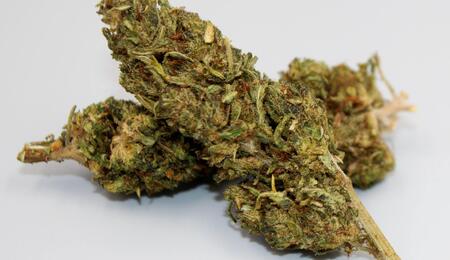Minnesota Expands Medical Cannabis Bill But Sees No Progress of Broader Legalization

Until now, Minnesotans were not allowed to use smokable forms of marijuana in treatment, but the latest change in the state law has sought to change that.
A bill to make cannabis legal in Minessota that recently passed the House crumbled in the Republican-controlled Senate, so better luck on some future session. However, the state has successfully upgraded its medical cannabis program.
Until now, Minnesotans were not to use smokable forms of marijuana in treatment, but the latest change in the state law sought to change that.
The state of Minnesota has only allowed cannabis in pill or liquid form, which is more expensive to produce and acquire, therefore remaining out of reach to many patients who may benefit from it, Soft Secrets has previously reported.
The process to introduce legal marijuana flower for medical patients in the state concluded over the last weekend. A bicameral conference committee approved the reform as part of a larger health bill that encompassed several other cannabis-related changes.
Subsequently, the House voted on Monday (May 17) in a 77-57 in favor of the new changes, as did the Senate in a 66-1 vote, forwarding the bill to the governor's desk.
Under the reform, Minnesotans aged 21 and older will be able to access smokable cannabis products. Dispensaries will be able to provide a curbside pickup option, and health caregivers will be liable to six registered patients at once, rather than just one.
The changes are expected to take hold from March 1, 2022, once the governor signs it into law.
“Over the course of 12 public hearings this year and a statewide tour visiting 15 communities, Minnesotans were loud and clear that our state’s medical cannabis program was too expensive, and that allowing flower could significantly improve access,” House Majority Leader Ryan Winkler (D) said in a press release.
Winkler has also backed broader legalization that would enable adults 21 and older to acquire and possess up to 1.5 ounces of marijuana and grow up to eight plants, four of which could be mature. The same bill also sought to expunge records for non-violent cannabis offenses.
“Our current cannabis laws aren't working for Minnesota,” said House Speaker Melissa Hortman in a statement. “Criminalizing a product that most people think should be available and continuing a legacy of racial injustice is simply not defensible."
"This smart, sensible legislation addresses racial inequities in our criminal justice system, mitigates any risks posed by legalizing adult use of cannabis, and ensures better outcomes for communities," Hortman said.
While the Minnesota House of Representatives approved Winkler's bill for broader legalization last week, with legislators voting 72-61, the Senate expectedly resisted it. Lawmakers there have indicated that they're more interested in revising the state's existing medical cannabis program than more broadly ending prohibition, which is what happened.
"This is by far the most important change since we originally got this law passed," said Patrick McClellan, a medical cannabis activist and patient from Bloomington who has pushed for cannabis reform since 2012.
In his statement, McClellan, who uses cannabis to treat a rare form of muscular dystrophy, has compared cannabis in pill or liquid form as "basically a designer drug for the rich," saying that it was something "only for people that could afford it."
"Most people like me, who are on disability, were forced then to purchase some from the manufacturers and then products that have been smuggled in from other states that we purchase on the street," he said, reports Minnesota Public Radio.
Although it's an upgrade that's been very much welcomed among advocates, Minnesota's medical cannabis bill will contain at least one disputed element. Although the bill expands the liberties of how medical pot can be used, it will also allow regulators to remove health conditions that qualify for patients of medical cannabis should a petition form is initiated from members of the public or a task force.
It would be a new option for regulators who were only able to approve new medical conditions for which pot can be prescribed as medicine or modify existing ones.
Minnesota has had a medical cannabis program since 2014, but nationwide it has been historically one of the most restrictive.
Laws that ban the combustion of dried raw cannabis are still voted in some states. Alabama Gov. Kay Ivey has just kicked her state's medical era by singing one such restrictive law.
Overall, cannabis legislation is moving both forward and backward depends on which state you look on. New York has recently introduced a law that regulates the recreational use of cannabis, as did Arizona in a timely fashion. These are, as of most recently, some of the states where lawmakers have demonstrated high enthusiasm to build a broad legal market. On the other hand, lawmakers in states like Mississippi, South Dakota, or Idaho have shown signs of derogatory stance against cannabis reform — in some cases at the cost of even going against the will of people who've voted marijuana legalization on the ballot.
When you think of Minnesota, it's somewhere in the middle, and lawmakers there may feel that time is running out on them to adopt new and more inclusive laws. This time it was only a revision of the state's existent medical program, but it won't be long before advocates try again for more comprehensive legislation.







